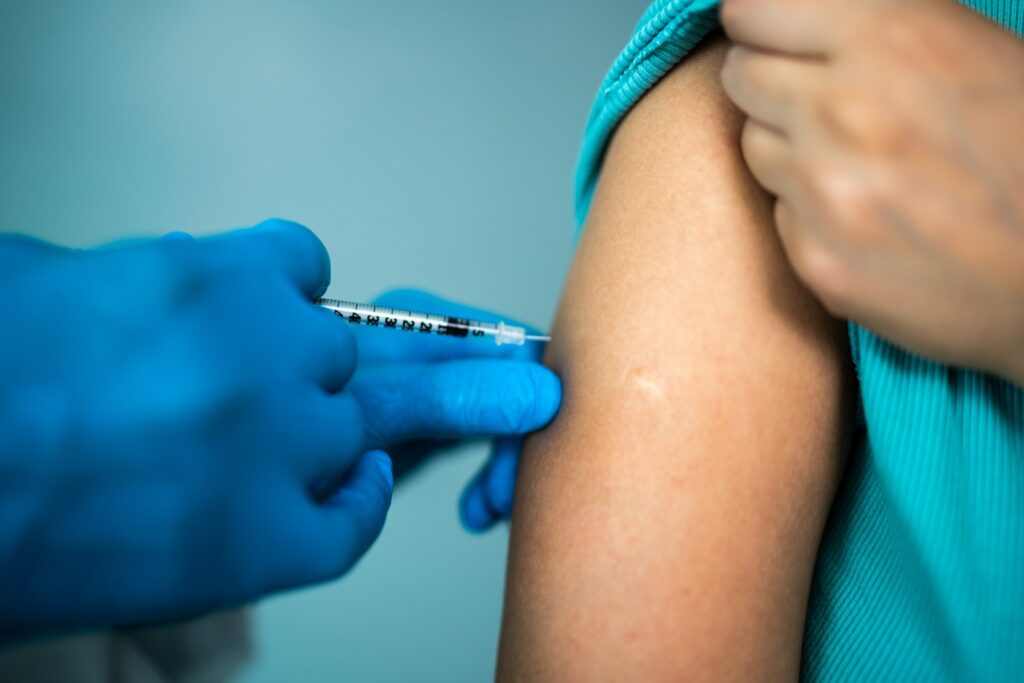- Newry: 028 308 33666
- Galgorm: 028 252 56093
- Omagh: 028 828 39678
The Travel Guide: The Importance of Private Immunisations

While travelling abroad, it’s vital to understand the risk of diseases and infections you might contract. Learn how private medical care vaccinations can help keep you safe.
Reasons To Get Vaccinated
Before travelling, there are various reasons you should seek out private medical care for immunisations against a variety of diseases. Without receiving proper immunisations, you may contract a life-altering or fatal disease which can easily be given to your loved ones upon your return.
In some cases, you will not be allowed to travel unless you have had the necessary vaccinations. This helps to prevent infections in the UK, by introducing diseases back into the country through travel.
Before getting vaccinated for different diseases, it’s important to find out whether your current vaccinations are still up-to-date. This includes your vaccinations against chickenpox, or mumps, which helps to keep you protected while abroad.
What You Can Be Vaccinated Against
To help guide you in what diseases can be vaccinated against, this section covers three examples of potential immunisations you might need to get before travelling. This list is not a definitive one, so seek the advice of a GP or private medical care expert beforehand.
Some diseases that you can be vaccinated against can be transmitted through sexual contact, such as HIV. If you’re planning to have sex abroad, make sure to seek professional sexual health advice before you begin travelling.
Rabies
While the risk of contracting rabies is small, it is a good idea to get vaccinated against rabies should your private clinic recommend you do so before travelling. Rabies can be caught through contact with an infected animal. The condition is almost always fatal, so speak to a medical expert about the risks and symptoms before travel.
Hepatitis B
A liver infection that is rare in the UK, Hepatitis B is commonly vaccinated against before travel. It can be transmitted through unprotected sex, sharing needles, receiving unchecked blood transfusions and even getting a tattoo with unsterilised equipment. This condition can be short-term or long-term, so opt for a vaccination to decrease the risk of contraction.
Diphtheria
Caught through close contact with an infected person, diphtheria is a highly contagious bacterial infection. Symptoms include swollen neck glands and a high fever, however, a medical professional can give you a definitive list of what to look out for. It can be very serious and even fatal, particularly in children.
Knowing The Risks
Know the risks of travelling abroad with a travel health risk assessment. A health risk assessment can be used to give you extra information about the vaccinations you might need before travelling abroad.
It’s a good idea to have a health risk assessment when travelling, especially if you fit into one or more of the below groups:
- Pregnant people
- Children
- Older people
- People with weakened immune systems
- People with long-term health conditions
Ideally, book a health risk assessment 6 to 8 weeks before you travel. If you’re travelling any sooner, it’s still a good idea to see a doctor. A private clinic can be especially useful, as waiting times for appointments are much shorter. Having the necessary vaccinations at the ideal time gives your body time to get immunity.
What We Do
At Duality Health Ltd, our team offers private medical care and immunisations to help you stay safe and healthy while travelling. We also provide sexual health services, giving you advice on how to have sex safely abroad. Book your private GP appointment today.
Visit our website or get in contact with our team for more information.